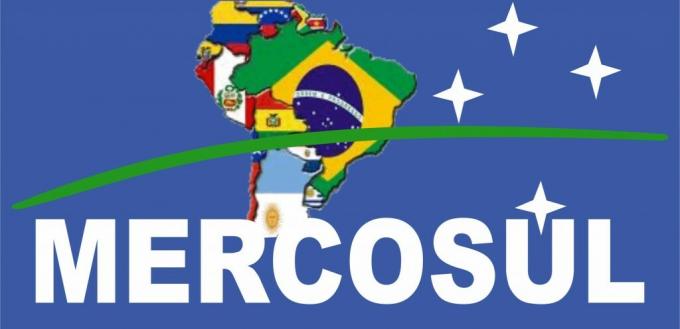
Mercosur (Southern Common Market) is an economic bloc characterized by being a customs union and created in 1991 by the Treaty of Asuncion, signed in Paraguay. The regional agreement has a total of twelve member countries divided between effective, associated and observers. Although it has limited international representation, Mercosur is considered very important for closer trade between Brazil and the other countries on the South American continent.
The creation of Mercosur happened when Brazil, Argentina, Paraguay and Uruguay established a free trade agreement, which was gradually extended to neighboring countries in the region. In 1995, the bloc evolved into the current status of a customs union, with the adoption of the TEC (Common External Tariff), which establishes the same import tariffs and export practiced by member countries in relation to non-members, although it is not fully applied (several products are considered exceptions to this rule).
see more
Inequality: IBGE discloses the 10 worst states to…
Israel is the 4th strongest military power in the world; check the ranking
In 1996, the process of accession of other countries began – at the time, Chile and Bolivia – as associate members, that is, members of the bloc with only a few specific free trade agreements, without adopting the TEC and without voting rights in the general decisions of the Mercosur. Later, in 2013, Peru and Venezuela also joined the bloc, followed by Colombia and Ecuador the following year. In that same decade, Mexico began to appear with the status of an observer member, that is, only following the decisions, but without effectively participating in the bloc. In 2010, New Zealand – a country in Oceania – also joined as an observer, due to its interest in getting closer politically and economically to South America as a whole.
As of 2006, Venezuela began to enter the accession process to become a a full member of the bloc, that is, it would adopt all the terms of the agreement and have the power to vote. The country, governed by Hugo Chávez and later by his successor Nicolás Maduro, intended to achieve greater political and commercial integration with the effective members of the Mercosur, from which it gained full support, except for Paraguay, whose congress, with a more conservative ideological orientation, refused to approve the entry of the new member effective.

However, in 2012, due to what was considered a “white coup” in Paraguay, in which the then president Fernando Lugo was deposed from office without major justifications, Mercosur suspended the country's participation on a temporary basis, since the bloc does not allow anti-democratic decisions to be taken between the its members. As a result, that same year, Venezuela finally managed to become a permanent member, which ended up being approved by the Paraguayan congress two years later, when the country again became part of the Mercosur. Currently, Bolivia – of Evo Morales – is also in the accession phase to become a permanent member, which will still be voted on by the parliaments of all currently effective members.
Therefore, the configuration of Mercosur members is organized as follows:
In statistical terms, member countries of the Mercosur make up about 40% of the Latin American population and most of the Gross Domestic Product of South America, with emphasis on for Brazil, considered the most developed country in the region, although it is a little behind in terms of development human. The objective of the bloc is to achieve, in the future, the condition of a common market, with the free movement of goods, goods, capital and people among its members, which still demands, in addition to greater political integration, an interconnection in terms of infrastructure, involving telecommunications and transport.
ADVERTISING
Mercosur's impact on the economy of their respective countries is undoubtedly highlighted by the greater commercial relationship they have acquired. To give you an idea, before the 1990s, Brazil's main importers and exporters was the United States, which was overtaken by Argentina precisely because of the evolution of the agreement regional. In addition, several Brazilian companies have set up operations in Argentine and Uruguayan territories, in addition to making agricultural and industrial products cheaper. Tourism, in turn, experienced a great leap due to the fact that visas are not required for those inhabitants of a member country who wish to visit the other.
On the other hand, there is a large volume of criticism directed at Mercosur, many related to protectionist measures eventually adopted by its members – above all Argentina – in order to benefit its national producers. Furthermore, in the internal context, many consider that Brazil's participation in the bloc limits the country's commercial activities in relation to foreign trade. This same thinking is reproduced in the context of other member countries, so that governments are often challenged by heated debates on this issue.
However, even with the criticism it receives, Mercosur shows an evolutionary trend and the expected path is that its agreements achieve greater evolution over the next few years. The main difficulties encountered are equalizing development prospects among their peoples and achieve a greater degree of competitiveness vis-à-vis other economic blocs, notably the NAFTA and the European Union.


